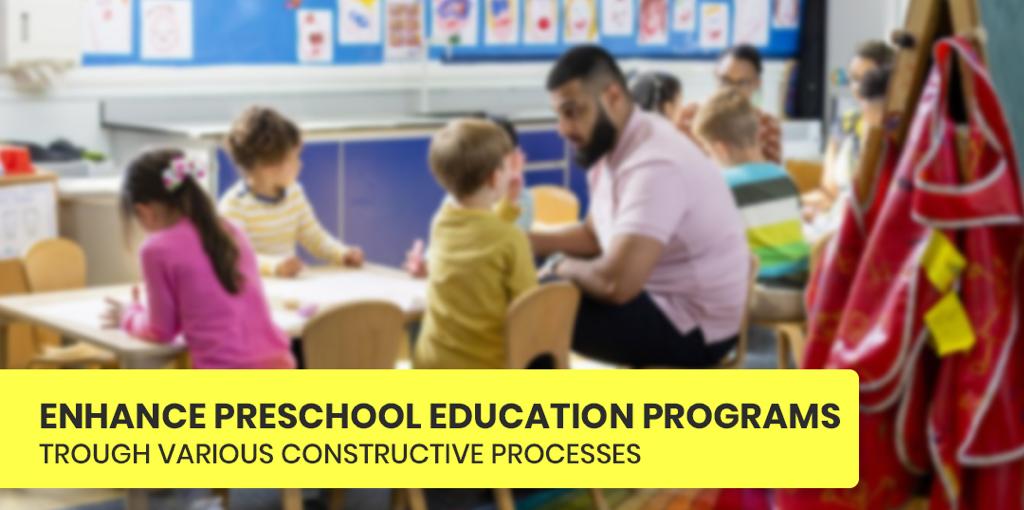Preschool education programs are pivotal and foundational in early childhood development. Children participate in their most formative and foundational growth until the age of 8, so they must have great experiences both socially and academically to be able to construct their future life. High-quality early care and educational experiences can go a long way in developing the habits and attitudes they’ll need for success both in later educational years and in their life after school. Certain practices can intensely enhance preschool education programs and the early educational process for young children. Here are four of the top things to consider for improving a Preschool program Malaysia.
1. Creating a caring community
The community in which children spend most of their time directly affects their development. This atmosphere must be facilitative to a sense of safety and full of support for the child as he or she learns new things and develops mentally in several ways. Some specifics that can promote this sense of support are low child-to-staff ratios, a zero-tolerance policy on bullying or any sort of negativity, the encouragement of positive social interactions at every level, and safe, healthy practices across the board. Children exposed to this ilk of the positive atmosphere are far more likely to succeed and thrive.
2. Curriculum that enhances development and learning
The choice of the curriculum in preschool education is the main subject of what these programs are all about. Without a good, solid curriculum, there can be no enriched preschool education program. Ideally, the curriculum and class choices should include a variety of aspects including hands-on learning, opportunities for autonomy and choice, the fanfare of collaboration between children, and an emphasis on self-regulation and individualization.
Studies have shown that preschool-age children experience more joyful interactions with peers while they are engaged in creative activities than when doing other creative types of activities. Doing activities that are open-ended and experiential tends to be more advantageous than projects with a defined, expected finished product. Allowing children even a small amount of self-sufficiency such as the ability to choose class activities and materials can affect them and their social growth in a very positive way.
An ideal curriculum framework includes:
- A way to evaluate and gather information about the students
- Developmental and contextual areas that will be addressed
- The activities and education that will be taught
- Methods of progress monitoring to demarcate success
3. Regular assessment of the child’s learning and development
Assessing preschool children’s learning and development is crucial for determining the effectiveness of the curriculum being conducted. Regular assessment of how children are experiencing their preschool education is helpful for both the students and the preschool’s structure to move forward. Assessment may take the form of regular examinations and/or observation of the students. In addition to various aspects of aptitude, testing should also be employed for less substantial types of development such as social learning and cognitive ability. The results of these assessments will allow for even more practical education going forward.
4. Establishing relationships with families
Another powerful indicator of success at the preschool education program level and in later years is active family involvement in educational plans. This involvement should include vigorous collaboration and communication between faculty and family members. Collaboration with families assists to design early experiences for preschool children that use communication strategies and a collaborative spirit. Family involvement is a permanent value that has many positive benefits for a child’s development. For example, family literacy programs can enhance a child’s ability to learn to read successfully.
The early years of a child’s life are an important pillar in their whole educational career. It is a time when children ideally learn specific skills that they can build on for a lifetime. These skills and experiences can help to maximize victory in school, in overall mental health, and optimal social development. The programs and practices that early childhood educators implement during preschool education can potentially influence the rest of a child’s life. Knowledge is the best practice that leads to success and can help provide preschool children with a strong foundation of positive experiences to build on.
Learningbox education provides high-quality syllabi and multimedia software across Malaysia, Indonesia, Vietnam, Thailand, and India that implement the latest teaching strategies and approaches for effective class management. With their exclusively structured interactive classroom software that comprises animation, stories, songs, and entertaining games designed for teachers to boost children’s learning ability, preschool children naturally enjoy their learning process. To know more about their activities and management, please go through the official website https://www.learningboxedu.com/.

